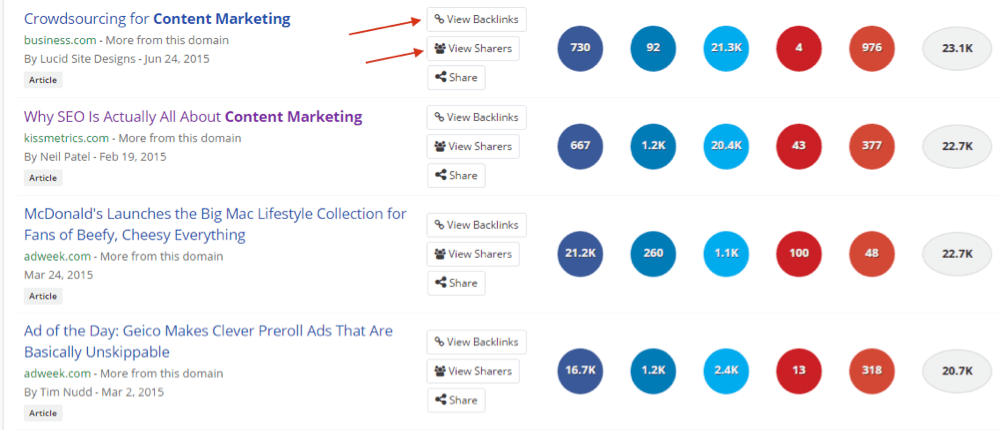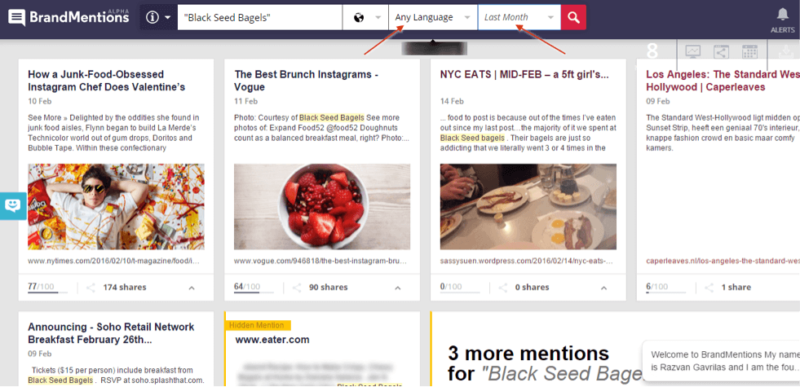6 strategies to build links for your small business website in 2016
Small business owners often don't know where to start when it comes to local link-building for SEO, so columnist Pratik Dholakiya shares his tips and suggestions.
Link building remains the cornerstone of most search engine optimization efforts. According to Moz’s “2015 Search Engine Ranking Factors Study,” links have the strongest association with higher search rankings of all the (known) attributes used by Google in its core ranking algorithm.
But one of the most common issues for small businesses is the struggle to build quality links. Lacking familiarity with current SEO best practices, many small firms still fall for the infamous black hat tactics to get links.
That is a mistake.
You see, search engines will continue to crack down on link exchanges, paid anchor placements and other shady approaches to building links.
Therefore, it is best to avoid these “old school” methods and focus on relevant, authoritative links that drive real traffic. Here are six ways to build such links for your small business website in 2016:
1. Partner with niche-specific influencers
Niche-specific influencers have connections with readers that bypass the “industry atmosphere” and form meaningful relationships. You can establish content partnerships with influencers who serve relevant content to your target audience.
For instance, you can be a regular contributor to their blogs and occasionally link out to your own landing pages. Consumers are more likely to trust these links over one or two sponsored posts for two reasons:
- They trust the influencer to only allow contributors who provide value; and
- a regular contribution from a small business owner/employee is seen as an honest contribution.
Consider the case of Paul Downs, a contributor at The New York Times’s You’re the Boss blog (now discontinued). He started a custom furniture business in 1986 and grew it over the years, sharing his expertise with other small business owners through his column.
He has a link back to his website from The New York Times. He achieved this link and exposure through his regular contribution to the blog, which offers advice to small business owners.
2. Leverage local partnerships
If you’re addressing people in a particular geographic area, then forming partnerships with local organizations can be an opportunity to get backlinks from their websites. In that case, you may already have existing partnerships, so all you need to do is get in touch with partner websites for link placement.
Aim for locally owned franchises and businesses instead of big corporations. You can also replicate the first link-building strategy by contributing to local blogs. And apart from local business blogs, you may come across official community blogs and local news blogs that welcome guest contributions.
Another thing you can do is sponsor local events that cater to small businesses. This can get you links from the event’s sponsorship page. Here is an example:
Small businesses that sponsored this resource fair not only got brand recognition, but also a backlink.
Apart from events, you can sponsor award ceremonies, conferences and charities.
3. Use the skyscraper technique
Invented by Brian Dean of Backlinko, this technique simplifies the link-building process by not requiring you to reinvent the wheel. Instead of coming up with new content ideas week after week, you can simply take what’s working for others (including your competitors!) and improve upon it. There are three steps to the skyscraper technique:
- Discover top-performing content in your niche. Top-performing content can be determined based on the number of times it has been shared on social media or the quality of links pointing to it. You can use a tool like BuzzSumo to search the content that has performed well and a tool like Open Site Explorer to analyze the quality of its backlinks.
- Create something better. Perhaps the top-performing content is low on practical examples or case studies. Or maybe it doesn’t go into as much detail as it could. You can deliver more value on the same theme by creating a more in-depth or comprehensive piece of content on the same topic.
- Promote your content via outreach. Reach out to relevant websites and influencers via email and social media. (Hint: Look at websites and influencers that are already linking to the content you’re improving upon.) Give them a heads-up about the new piece, and that includes the most recent information and examples.
The skyscraper technique is also considered “content marketing for link builders.” Various reports reveal that this technique has helped businesses build organic links and drive traffic to their websites.
4. Search for business mentions
Finding business mentions that do not include links on community resource pages, forums and so on is a convenient and cost-effective way to build links. In addition to using the brand name when trying to uncover backlink opportunities, use other relevant keywords that would be listed on the page in addition to your business name to narrow down your search.
With BrandMentions, the web mentions database, you can discover mentions of your business and relevant keywords in the last 24 hours, last week and last month. Choosing “English” as the preferred language will further narrow down mentions. BrandMentions can be used with Google Alerts to research new mentions.
After you click on a particular URL, use CTRL+F (find function) to search for your brand on the page. You may find articles that are dedicated to your business or indirectly mention your business but don’t include a link to your website. Get in touch with the authors of these articles and ask for link insertion.
5. Create a resource page
Depending on your locality, you can create a local resource page that includes useful information for small businesses in your area. For instance, if you’re a clothing retailer in Washington, DC, you can create a list of the best wholesalers and manufacturers in your city.
When you provide useful information, other businesses (even competitors) will link to your resource page. You can partner with local subject matter experts to create information-rich resource pages; the efforts put into these pages will pay off once they capture the attention of businesses in the industry.
A resource page can then be cited when participating in Q&A websites and local business forums. It might even land you interviews and guest appearances (webinars, podcasts and so on), providing opportunities to build links from participated content.
Also, check sites like Help a Reporter Out for additional linking opportunities.
6. Create premium content
If you want to get backlinks from major publications and leading industry blogs, you need to create premium content — content that demonstrates thought leadership and isn’t just a complication of tips or lists from other small business blogs.
Premium content includes:
- white papers;
- e-books;
- resource pages;
- in-depth blog posts;
- podcasts;
- case studies;
- infographics; and
- co-created guest posts.
While premium content pieces require more time for completion, they have a much higher chance of being linked to than a standard blog post.
Partnering with other businesses that are not direct competitors can cut costs while giving all partners an opportunity to attract authority links.
Final thoughts
Before your competitors gain an edge over your website in SERPs, make a resolution to jump on the link-building bandwagon. The strategies mentioned above will help you gain links and enjoy better search rankings for your website.
Contributing authors are invited to create content for Search Engine Land and are chosen for their expertise and contribution to the search community. Our contributors work under the oversight of the editorial staff and contributions are checked for quality and relevance to our readers. The opinions they express are their own.
Related stories
New on Search Engine Land





